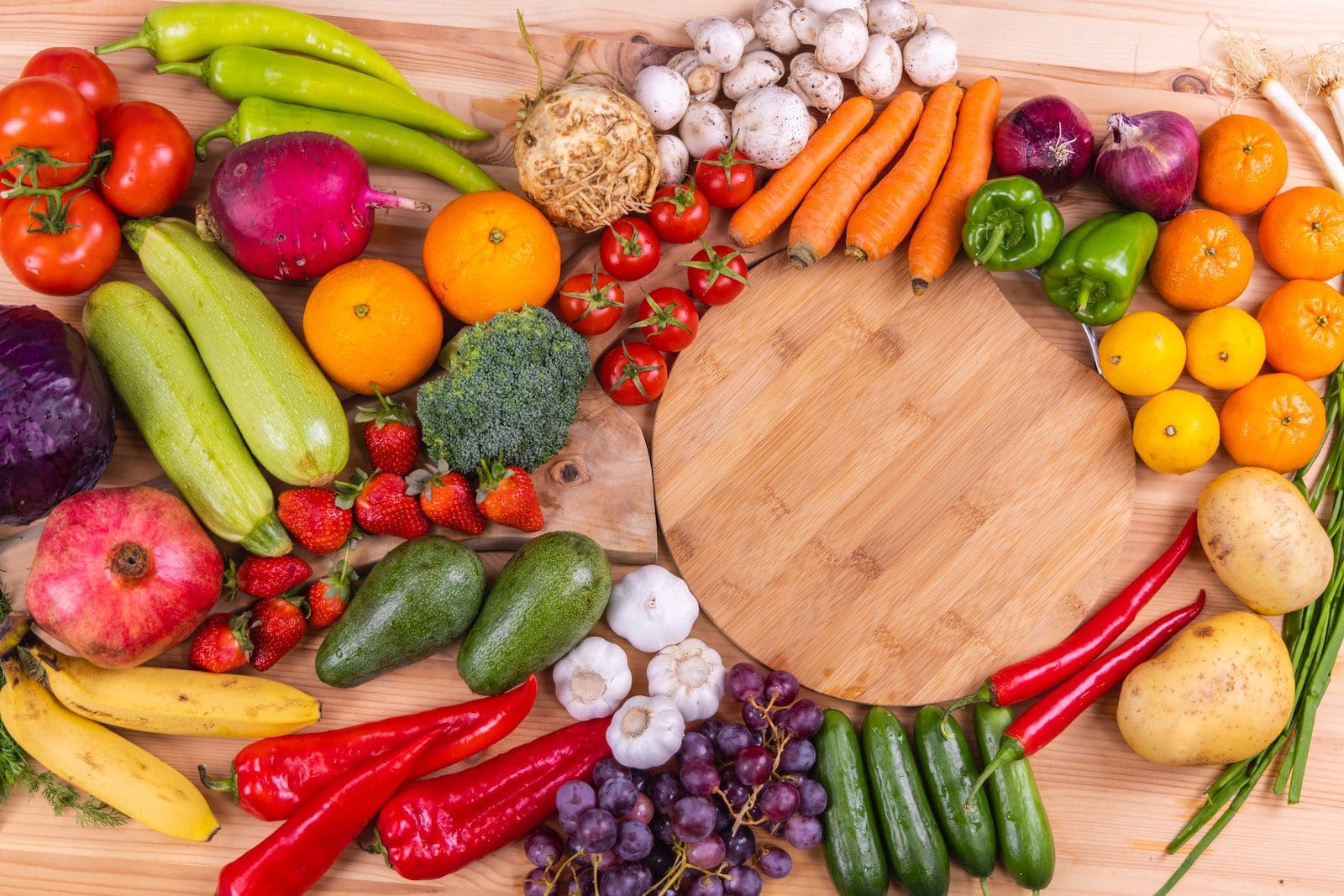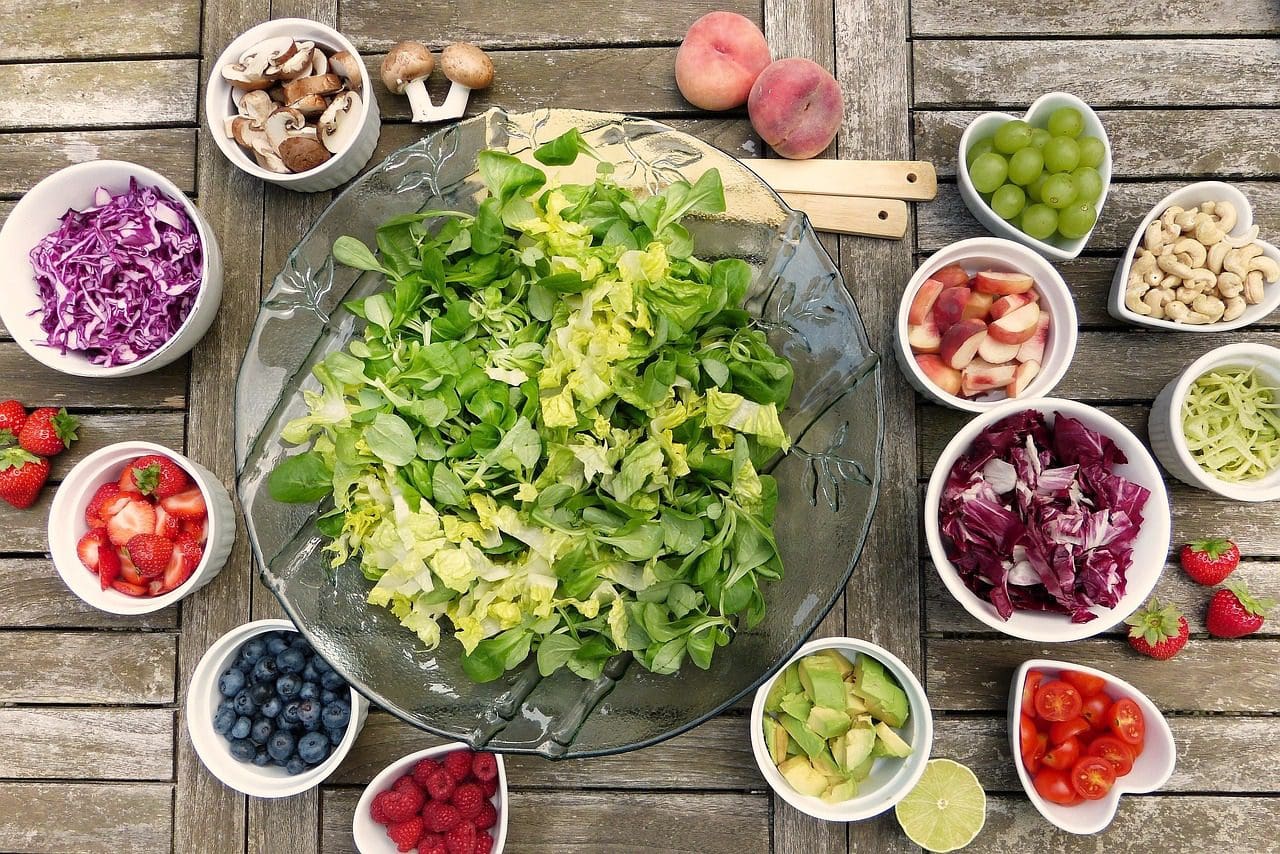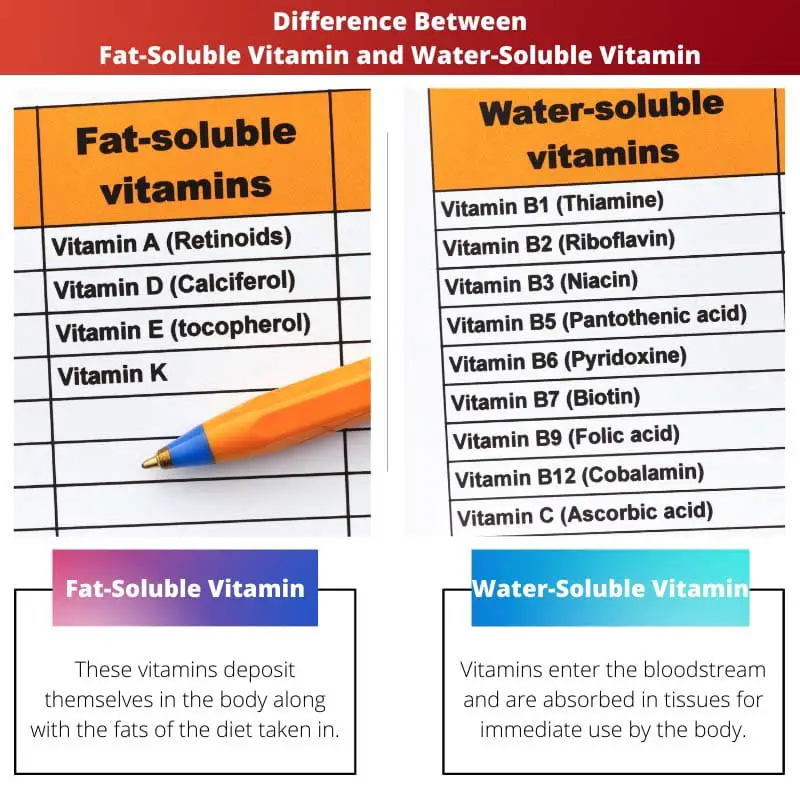Fat-Soluble Vitamin And Water-Soluble Vitamin are types of vitamins. Vitamins and Minerals are an important part of life to keep human beings fit and healthy.
Key Takeaways
- Fat-soluble vitamins dissolve in fat and require dietary fat for absorption, while water-soluble vitamins dissolve in water.
- Fat-soluble vitamins can be stored in the body, whereas water-soluble vitamins are not stored and require regular intake.
- Fat-soluble vitamins include A, D, E, and K, while water-soluble vitamins include B-complex and C.
Fat-Soluble Vitamin vs Water-Soluble Vitamin
The fat-soluble vitamin is a type of vitamin that is consumed through the fat in your diet, and it absorbs the vitamins to the liver. Water soluble vitamin is a type of vitamin that is transported to the body tissues but is not stored or absorbed in the body. It enters the bloodstream and is for immediate use.

Fat-Soluble Vitamins are the vitamins that are consumed through the fats which are present in your diet. The fat tissues and the liver absorbs the vitamins.
Water-Soluble Vitamins are transported to the tissues of the body. However, these vitamins are not stored or absorbed in the body.
Comparison Table
| Parameters of Comparison | Fat-Soluble Vitamins | Water-Soluble Vitamins |
|---|---|---|
| Definition | These vitamins deposit themselves in the body along with the fats of the diet taken in. | Vitamins enter the bloodstream and are absorbed in tissues for immediate use by the body. |
| Stored In | Fat-soluble vitamins deposit in the body’s fat tissues for up to 6 months. | Water-soluble vitamins don’t store themselves in the body, they excrete through urine. |
| Which vitamins? | Vitamin A, D, K, and E are vitamins that fall under the category of fat-soluble vitamins. | Vitamin B complex members and Vitamin C are the vitamins that fall under the category of water-soluble vitamins. |
| Toxicity | If taken in excess they can be very dangerous and cause serious health problems. | They are not as dangerous as fat-soluble vitamins. |
| Food products | Fish, Meat, Egg, Milk, etc. | Whole Grains, Nuts, etc. |
What is Fat-Soluble Vitamin?
Fat-soluble vitamins are vitamins that are consumed through fats and oils from the diet of a human. These vitamins are stored in the body for a while.
Vitamins A, D, E, and K are the vitamins that fall under the category of fat-soluble vitamins. Each of these vitamins is important for the body, and each of them has an important function.
Fat-soluble vitamins, if taken in excess, can be dangerous for the body. Their excessive consumption can lead to serious health problems like dry and itchy skin, loss of appetite, headache, and nausea, and it can also lead to severe birth defects.
Some of the sources of fat-soluble vitamins are fish, milk, eggs, meat, vegetable oils, soybeans, and vegetables like carrots, broccoli, spinach, etc. And the best source of vitamin D is sunlight.

What is Water-Soluble Vitamin?
Water-Solubles vitamins are vitamins that are dissolved in water and do not store in the body. They are immediately used once they are consumed and enter the tissues.
Vitamin C and all the members of Vitamin B, i.e. Vitamin B1, B2, B3, B5, B6, B7, B9, and B12, all fall under water-soluble vitamins.
The deficiency or excessiveness of these vitamins in the body can cause health problems as well. The deficiency of these vitamins can cause clinical syndromes, hair loss, cataracts, and reproductive problems.
The sources of water-soluble vitamins are citrus fruits, cantaloupe, tomatoes, beans, yeast extracts, strawberries, mushrooms, avocados, Brussel sprouts, bell peppers, and whole grains like rice, wheat, barley, oatmeal, millet, etc.

Main Differences Between Fat-Soluble Vitamin And Water-Soluble Vitamin
- Fat-soluble vitamins have a slow onset of deficiency symptoms, while water-soluble vitamins have a fast onset of deficiency symptoms.
- Food sources of fat-soluble vitamins are Fish liver oils, eggs, milk, cheese, butter, green vegetables, etc. Food sources of water-soluble vitamins are whole grains, sunflower seeds, nuts, yeast, etc.

- https://www.sciencedirect.com/science/article/pii/S0165993616303375
- https://books.google.com/books?hl=en&lr=&id=kn8eBAAAQBAJ&oi=fnd&pg=PP8&dq=water-Soluble+Vitamin+&ots=IuoeBI6xN6&sig=jHBnwKX_R3pO3_77D59jJS2u9AA